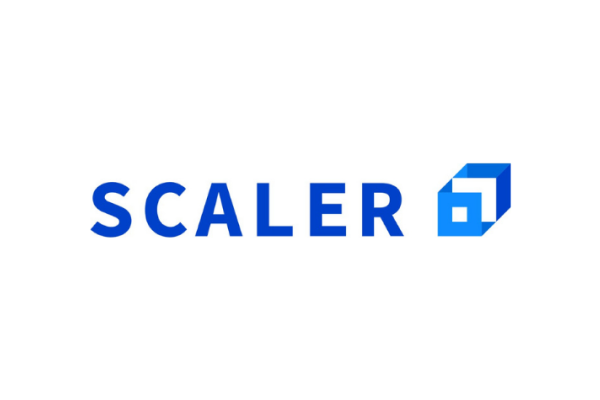Free Scaler Data Science & Machine Learning Program Alternative

About the Course
The Scaler Data Science & Machine Learning Course is designed to equip learners with industry-relevant data science skills. The curriculum covers key topics such as Python programming, data analysis, statistics, machine learning, deep learning, and natural language processing. It emphasizes practical applications, including hands-on projects and real-world problem-solving. The course includes personalized mentorship, live classes, and career support to help learners transition into data science roles.
Moocable Alternative
We carefully study a bootcamp/influncer course and provide a free/affordable alternative using MOOCs (online courses, books...). In addition, you can find study partners and have your own DIY-bootcamp for free!
Syllabus
Module 1: Beginner Module
1. Excel Basics for Data Analysis
IBM via Coursera

Spreadsheet tools like Excel are an essential tool for working with data - whether for data analytics, business, marketing, or research. This course is designed to give you a basic working knowledge of Excel and how to use it for analyzing data. This course is suitable for those who are interested in pursuing a career in data analysis or data science, as well as anyone looking to use Excel for data analysis in their own domain. No prior experience with spreadsheets or coding is required.
- Free to audit
- Duration: 12 hours, 3 minutes
- Difficulty: Beginner
2. Introduction to Tableau
Tableau via Coursera

The Introduction to Tableau course will give you an understanding of the value of data visualizations. You will learn how to preprocess data and how to combine data from multiple tables found within the same data source as well as other data sources in Tableau Public. You will have developed the skills to leverage data visualization as a powerful tool for making informed decisions.
- Free to audit
- Difficulty: Beginner
3. SQL for Data Science
University of California, Davis via Coursera

This course is designed to give you a primer in the fundamentals of SQL and working with data so that you can begin analyzing it for data science purposes. You will begin to ask the right questions and come up with good answers to deliver valuable insights for your organization. This course starts with the basics and assumes you do not have any knowledge or skills in SQL.
4. Python Programming MOOC
University of Helsinki via Independent
This is the course material page for the Introduction to Programming course (BSCS1001, 5 cr) and the Advanced Course in Programming (BSCS1002, 5 cr) from the Department of Computer Science at the University of Helsinki. To pass either of the two courses you are expected to complete programming exercises and take part in an exam.
- Free course
- Free certificate
- Difficulty: Beginner
Module 2: Data Analysis & Visualization
1. Understanding and Visualizing Data with Python
University of Michigan via Coursera
In this course, learners will be introduced to the field of statistics, including where data come from, study design, data management, and exploring and visualizing data. Learners will identify different types of data, and learn how to visualize, analyze, and interpret summaries for both univariate and multivariate data.
- Free course
- Duration: 19 hours, 37 minutes
- Difficulty: Beginner
2. Inferential Statistical Analysis with Python
University of Michigan via Coursera
In this course, we will explore basic principles behind using data for estimation and for assessing theories. We will analyze both categorical data and quantitative data, starting with one population techniques and expanding to handle comparisons of two populations. We will learn how to construct confidence intervals. We will also use sample data to assess whether or not a theory about the value of a parameter is consistent with the data.
- Free course
- Duration: 21 hours 46 minutes
- Difficulty: Intermediate
3. Fitting Statistical Models to Data with Python
University of Michigan via Coursera
In this course, we will expand our exploration of statistical inference techniques by focusing on the science and art of fitting statistical models to data. We will build on the concepts presented in the Statistical Inference course (Course 2) to emphasize the importance of connecting research questions to our data analysis methods. We will also focus on various modeling objectives, including making inference about relationships between variables and generating predictions for future observations.
- Free course
- Duration: 14 hours, 54 minutes
- Difficulty: Intermediate
Module 3 & 4: Foundations of Machine Learning & Deep Learning
1. Machine Learning Foundations: A Case Study Approach
University of Washington via Coursera

Do you have data and wonder what it can tell you? Do you need a deeper understanding of the core ways in which machine learning can improve your business? Do you want to be able to converse with specialists about anything from regression and classification to deep learning and recommender systems? In this course, you will get hands-on experience with machine learning from a series of practical case-studies.
- Free course
- Duration: 18 hours, 9 minutes
2. Machine Learning: Regression
University of Washington via Coursera
Case Study - Predicting Housing Prices In our first case study, predicting house prices, you will create models that predict a continuous value (price) from input features (square footage, number of bedrooms and bathrooms,...). This is just one of the many places where regression can be applied. Other applications range from predicting health outcomes in medicine, stock prices in finance, and power usage in high-performance computing, to analyzing which regulators are important for gene expression. In this course, you will explore regularized linear regression models for the task of prediction and feature selection.
- Free course
- Duration: 22 hours 23 minutes
3. Machine Learning: Classification
University of Washington via Coursera
Case Studies: Analyzing Sentiment & Loan Default Prediction In our case study on analyzing sentiment, you will create models that predict a class (positive/negative sentiment) from input features (text of the reviews, user profile information,...). In our second case study for this course, loan default prediction, you will tackle financial data, and predict when a loan is likely to be risky or safe for the bank. These tasks are an examples of classification, one of the most widely used areas of machine learning, with a broad array of applications, including ad targeting, spam detection, medical diagnosis and image classification. In this course, you will create classifiers that provide state-of-the-art performance on a variety of tasks. You will become familiar with the most successful techniques, which are most widely used in practice, including logistic regression, decision trees and boosting.
- Free course
- Duration: 21 hours 25 minutes
4. Machine Learning: Clustering & Retrieval
University of Washington via Coursera
Case Studies: Finding Similar Documents A reader is interested in a specific news article and you want to find similar articles to recommend. What is the right notion of similarity? Moreover, what if there are millions of other documents? Each time you want to a retrieve a new document, do you need to search through all other documents? How do you group similar documents together? How do you discover new, emerging topics that the documents cover? In this third case study, finding similar documents, you will examine similarity-based algorithms for retrieval.
- Free course
- 17 hours 21 minutes
5. Neural Networks and Deep Learning
Stanford University , DeepLearning.AI via Coursera
In the first course of the Deep Learning Specialization, you will study the foundational concept of neural networks and deep learning. By the end, you will be familiar with the significant technological trends driving the rise of deep learning; build, train, and apply fully connected deep neural networks; implement efficient (vectorized) neural networks; identify key parameters in a neural network’s architecture; and apply deep learning to your own applications.
- Free course
- Duration: 1 day 35 minutes
Module 5: Machine Learning Ops
1. Open Source Software Development, Linux and Git Specialization
Linux Foundation via Coursera
The Open Source Software Development, Linux and Git Specialization will give you a strong foundation for working comfortably and productively in open source development communities. By completing the Specialization, you’ll have a better understanding of the Linux environment, as well as methods and tools required to successfully use it, and you’ll know how to use Git, the distributed version control system.
- Free course
- Duration: 2 months at 10 hours a week
- Difficulty: Beginner
Module 6: Advanced Data Structures & Algorithms
1. Algorithmic Toolbox
University of California, San Diego via Coursera
This online course covers basic algorithmic techniques and ideas for computational problems arising frequently in practical applications: sorting and searching, divide and conquer, greedy algorithms, dynamic programming. We will learn a lot of theory: how to sort data and how it helps for searching; how to break a large problem into pieces and solve them recursively; when it makes sense to proceed greedily; how dynamic programming is used in genomic studies.
- Free course
- Duration: 1 day 16 hours 3 minutes
- Difficulty: Intermediate
2. Data Structures
University of California, San Diego via Coursera
A good algorithm usually comes together with a set of good data structures that allow the algorithm to manipulate the data efficiently. In this online course, we consider the common data structures that are used in various computational problems. You will learn how these data structures are implemented in different programming languages and will practice implementing them in our programming assignments.
- Free course
- Duration: 1 day 31 minutes
- Difficulty: Intermediate
Get Certified
All the courses listed above are FREE to enroll. You can audit Coursera courses for free.
However, we understand that some learners need to get certified. In this case, you can still follow our syllabus and pay for the certificates.
If you choose the audit route, you will obtain certificate(s) for:

On the other hand, if you pay for the certificates, you will obtain certificates granted by:
- University of Helsinki
- University of Washington
- UC San Diego
- Linux Foundation
- for less than 1/10th the cost of Scaler Academy.
Benefits
Save upto INR 3,00,000
That's how much you'll save by choosing the alternative route versus Scaler Academy program. You'll learn the same skills and topics, without the expensive price tag.
Curriculum taught by world-class experts
Our alternative syllabus is taught/provided by world-class experts
- University of Helsinki
- University of Washington
- Linux Foundation
- UC San Diego
Better material, richer communities
Unlike Scaler Academy's program, all the resources in our syllabus are free to access. That means it's open to more scrutiny and improvements.
In addition, all the courses & books listed in our syllabus have over +100k learners (cumulative) . That means, you can find peers, study partners, and reviews easily.
If you are looking for study partners/mentors, join a study group on Moocable
Certificate recognised world-wide
Institutions like "University of Helsinki", "Coursera", "University of Washington", "UC San Diego", etc, are recognised globally. These certificates have more credibility and authority, and can help you get better jobs.
Objections
After helping thousands of learners, we've noticed a collection of objections/concerns learners have regarding bootcamps. We've dedicated an entire page to answer each of them descriptively.
Looking for peers & mentors?
Upskill and get placed at companies with the help of peers and mentors! Join our community and find structure + accountability + motivation













